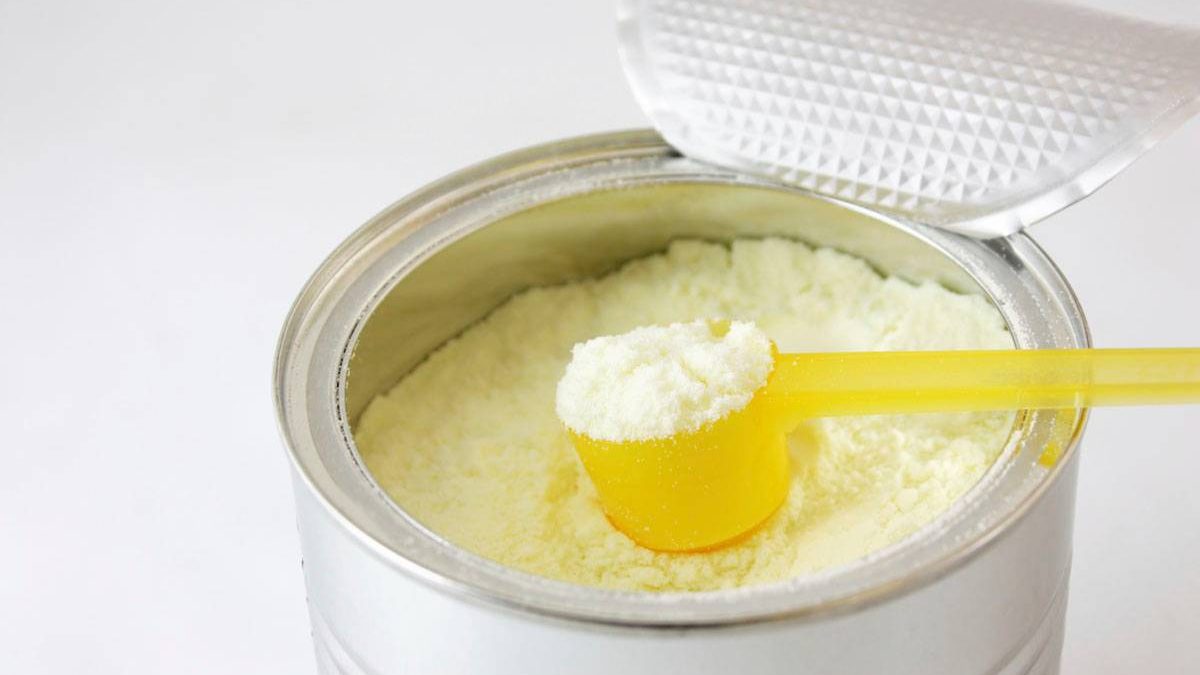Breastfeeding is recommended as the best way to feed a newborn and infant, especially. The reason is the unique composition of breast milk, perfectly tailored to the baby’s needs. However, there are different reasons why some parents want or need to choose baby formula. Nowadays, you can choose from many different products and check European baby formula brands.

All formulas for newborns and infants are made of modified milk. As they are made from cow’s or goat’s milk, they must be adapted to the needs of human infants. The modification involves the appropriate preparation of milk proteins and adding the necessary nutrients and vitamins.
All baby formulas available on the market must meet a number of standards and restrictions regarding composition and provide the baby with all the nutrients necessary for development. However, it happens that the list of baby formula ingredients includes such unhealthy components as maltose, maltodextrin, glucose, glucose syrup, and starch. So, what is worth knowing about the components of baby formulas? Let’s figure it out.
Table of Contents
Protein
Most baby formulas are based on skimmed milk with the addition of whey. This requires adding more additional fats, e.g., vegetable fats. The products based on whole milk retain more valuable ingredients and vitamins and do not require such a large addition of other fats.
Fats
Breast milk contains fats, and what is particularly important, fats rich in unsaturated fatty acids Omega-3 (in the form of DHA) and Omega-6. Baby formulas must also be enriched with these fats. If the mixture is made from whole milk, the manufacturers add vegetable fats, e.g., rapeseed or sunflower oil, and DHA. Avoid baby formulas with palm oil.
Carbohydrates
In baby formulas, the main source of carbohydrates is lactose (milk sugar). Cow’s milk is low in lactose, so the milk for the formula is enriched with it – the amount of lactose is almost doubled. Lactose covers about 50% of a baby’s energy needs, influences the proper development of intestinal microflora, and facilitates the absorption of calcium, zinc, and phosphorus.
Vitamins and Other Additives
Baby formulas are often enriched with vitamins and additional substances supporting development. These are:
- minerals: iron, zinc, sodium, selenium, potassium, calcium, and magnesium;
- vitamins C, A, B vitamins, D3, K;
- probiotics: active cultures of bacteria living in the intestines and contributing to the proper functioning of the digestive system, protecting against diarrhea, and inhibiting the growth of pathogenic bacteria, thus supporting the immune system.
- prebiotics: naturally present stimulating substances in the digestive system (they are not live microorganisms) that support the development and action of good bacteria, probiotics.
Breast milk also contains hormones (prostaglandins, growth factors) and enzymes (lipase, which facilitates the digestion of fats; lactoferrin, which increases the absorption of iron and creates antibacterial protection; amylase, which facilitates the digestion of polysaccharides; lysozyme, which has an antibacterial effect). Currently, many laboratories are working on the possibility of including synthetic lipase or artificially produced lactoferrin in baby formulas, and these ingredients will probably soon also appear in infant formulas.

